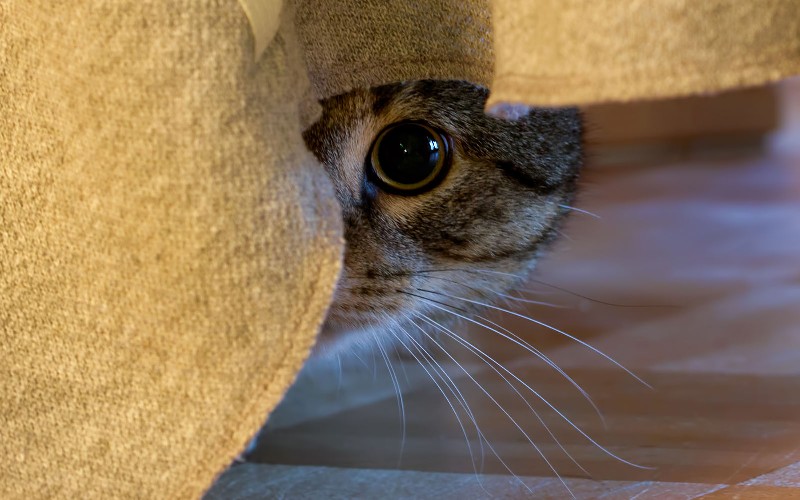
Managing cat separation anxiety
Although we often think of cats as independent creatures, they can suffer from separation anxiety, much like dogs. This condition is especially common in indoor cats that form strong attachments to their pet parents. Recognizing and addressing cat separation anxiety can improve your feline friend's quality of life.Signs of separation anxiety in cats
How do you know if your cat has separation anxiety?
Look for the following behaviors when you or a family member is away:
- Excessive vocalization/meowing
- Eliminating outside the litter box
- Destructive behavior
- Changes in appetite
- Vomiting or diarrhea (in the most extreme cases)
- Excessive self-grooming
- Extreme excitement or aggression when you leave or return
- Trying to escape when you leave
Causes of separation anxiety in cats
Understanding the cause of your cat's anxiety can help in managing it effectively.
Some common triggers include:
- Noise phobias
- Limited enrichment (playtime, exercise and bonding with the parent)
- Exposure to stressful experiences during the socialization period (2 weeks to 8 weeks old), common among cats who were weaned too early
- Changes in routine or lifestyle, such as moving to a new home or changes in your schedule
- Genetic predisposition
Managing cat separation anxiety
Here are five tips that can help reduce your cat’s stress levels while you or a family member are away.
- Behavior modification training: Considered the gold standard for managing separation anxiety, this method can be complex and might require a veterinary behaviorist. Techniques include: practicing short absences, gradually increasing the time away and/or desensitizing your cat to their anxiety triggers. like the sound of keys or putting on your shoes. Practice these triggers without actually leaving home to break the association with your departure.
- Use of pheromone sprays: Pheromones are chemical signals that cats produce naturally. They can send different messages, from marking territory to more soothing ones. Products containing calming pheromones can reduce stress. Use them in areas where your cat spends most of its time.
- Environmental enrichment: We’ve underlined in different articles the importance of environmental enrichment to help your cat feel less bored. Enriching their environment with cat trees and perches besides entertaining them, may also make them feel more secure in their environment while home alone.
- Extra playtime before leaving: This will not only help your pet feel mentally and physically satisfied, but it can also help your cat burn off excess energy. Regular interaction also prevents loneliness and boredom. While you are away instead, leave pet-approved toys accessible for your cat and if possible, let your cat play in a secure outdoor space.
- Adopt new leaving patterns: It might make us feel better to hug and kiss our pets before we leave, but this can increase their stress levels. Instead, try not to make a big deal about your departure. This approach can help reduce your pet's anxiety when you leave.
Conclusion
Training for cat separation anxiety takes time and patience. It can also involve ups, downs, and even setbacks. Remember to never scold your pet for bad behavior as it could worsen their anxiety. If you have concerns or can't find a solution, consult your vet for the best course of action.
By understanding and addressing your cat's separation anxiety, you can help them feel more secure and comfortable even when you're not home.

